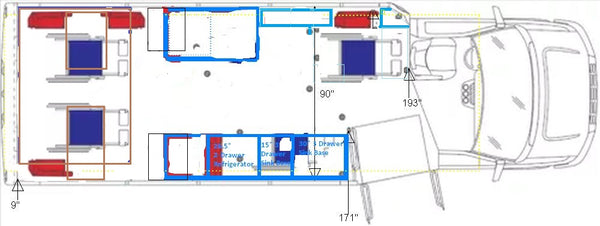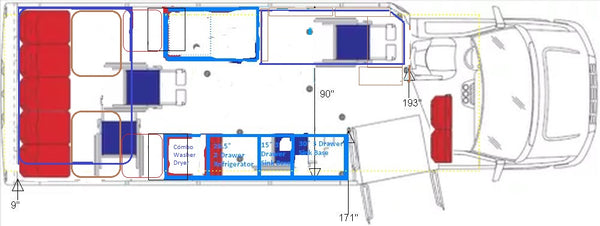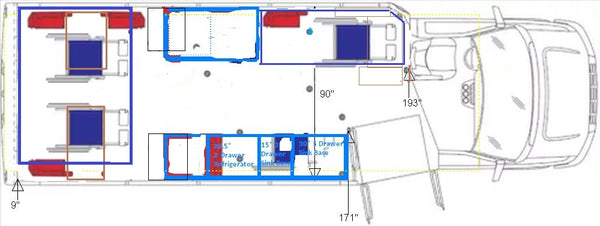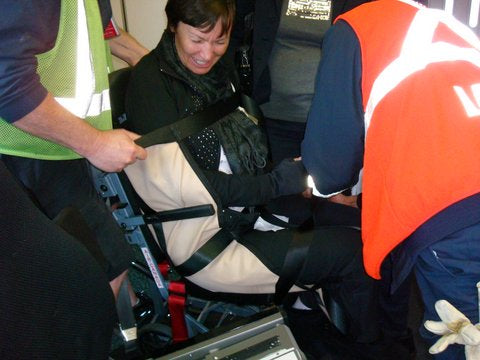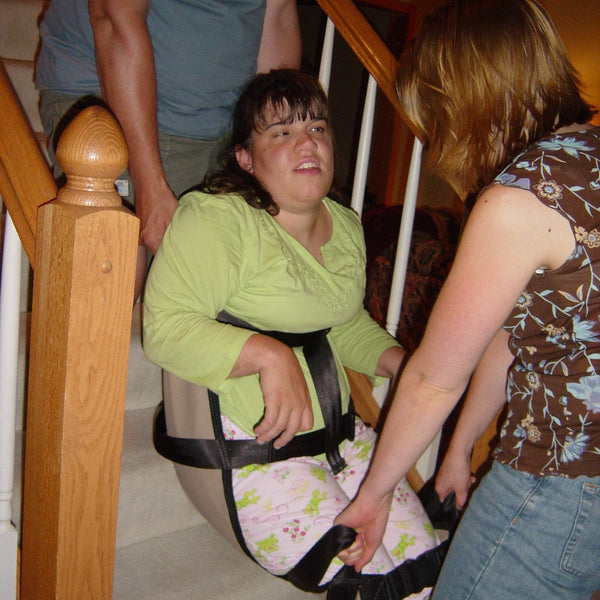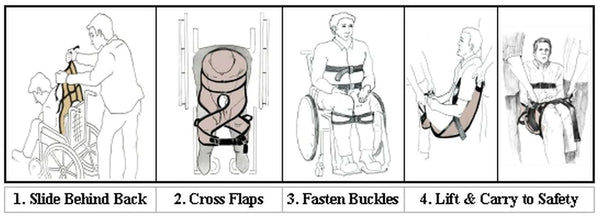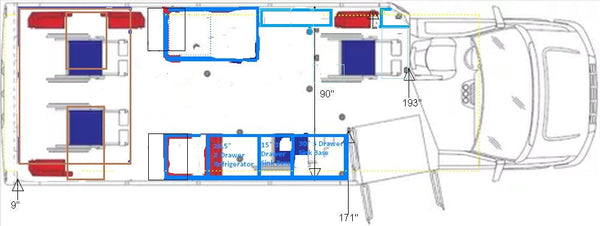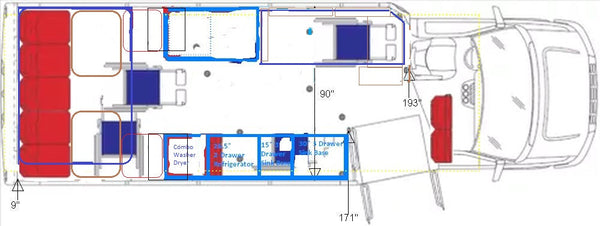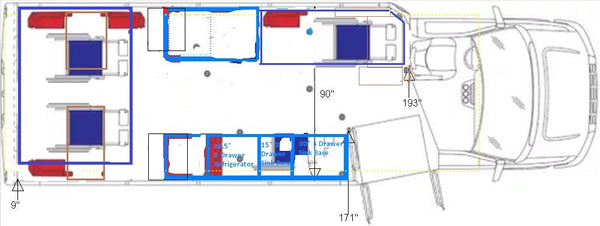The consumer of healthcare, or any basic need, must have the power of choice for all within a society to benefit from the efficiencies of a capitalistic, market-based economy. This creates efficiency in cost and availability. To stimulate competition that creates these efficiencies and rewards innovation, the provider must have the power to set price but is limited by the pressures of the market.
We have seen and experienced how well a competitive, capitalistic, market economy completely changed China in the past 70 years, and the the impact it's had on United States over the past 400 years, amongst many other examples throughout history.
No one argues whether food, clothing, or shelter our basic needs as those debates happened thousands of years ago and have been long accepted. Clean breathable air is an even greater basic need than food but has not been generally listed because it was assumed available to all on earth. The same for sanitation as Earth's long-term processes provided this until we humans overwhelm any particular habitat provided by Earth's natural long-term processes.
The debate over education as a basic need has occurred over the past few hundred years and is now, or at least within the last 40 years, generally accepted as a basic need within most modern societies, It has been accepted that meeting at least the basic need for education is beneficial to all of society. The level to which this need is met, or what defines basic need is now what is debated within different societies. Providing education and security is relatively consistent in cost and complexity from one individual to another within any society. There will always be a debate as to what is basic need which is tested by those individuals to which providing any basic need is more costly or complex whether that be education, security, healthcare, or in the future to greater extensive air, sanitation, food and shelter. Each society at different levels must decide what is a basic need for which that society will ensure the needs of all are met, and what levels must be acquired through trade of productive value.
The development and availability of healthcare and truly it's impact on quality of life have accelerated exponentially over the past 70 years since the 1950s. As societies, we are struggling with the incorporation and acceptance of healthcare as a basic need, and what level is a basic need. We are struggling because it is changing so rapidly as with any new development throughout history. We are also struggling because the cost and complexity of providing healthcare varies drastically from one individual to another and while this might be averaged over lifetimes and billions of persons, the cost and complexity especially varies greatly from year to year drastically based on how well other basic needs are met, how that individual creates productive value within their political, organizational, and habitat societies.
The United States and many nations have been experimenting with socialism to distribute income based on need to meet the basic need for healthcare. This hasn't worked. The provider is told how much they can charge and the power of choice is removed from the consumer, or severely hampered. Prior to this experiment healthcare was distributed from income based on productive value, which didn't work either.
The partisan politics in the US is a result of searching for balance between need for economic productivity and the stability and security that comes from meeting the basic needs of society. Before imagining a solution we must understand the underlying pressures on finding this balance within any society.
Productive Income and Basic Income
A working society needs both income based on productive value, and income based on need to meet each member's basic needs of consumption to maintain a minimum level of quality of life. A society that is completely based on productive value leaves behind those able to produce value at a level below their basic needs whether based on age, education, physical or mental ability.
Individuals within the society able to produce value in excess of their basic needs directly benefit when that society is stable and secure. Individuals are better able to organize a smaller society within the broader society and together produce greater value more efficiently. That society benefits when all members benefit from production of value at each individual's maximum capability. It is left to each member to decide and determine the level of effort they will put into creating value and the benefit they received from that value.
It is detrimental to society to have some members of that society in a state of desperation to meet their basic needs of consumption. This leads to political and civil unrest, theft, violence, and generally all the isms.
Capitalism vs Socialism
Capitalism has been demonstrated as a system that creates efficiencies by minimizing costs and maximizing productive capacity. Individual provider must determine price under pressure from the Market. Consumer must determine what willing to pay under pressure from market.
Socialism or really any system under which a third-party determines price of provider or cost consumer must pay becomes inefficient for both provider and consumer.
Basic Needs of Consumption
Society must determine the list of basic needs of consumption. Most modern societies identify this list as: air, food, water, clothing, shelter, sanitation, security, education, and healthcare. In the past, air and sanitation were not listed as they were assumed. Healthcare and education may not have been available or only had a very rudimentary level or concept. The extent of need for shelter is based on external habitat.
The more advanced and progressive that society, the more effective that society can meet that societies list of basic needs of consumption. The more effectively these basic needs of consumption are met, the more stable is that society, and the more able that society is to address threats to these basic needs of consumption whether natural such as from climate. Those outside of that society who are lacking in these basic needs will always form a threat whether through security (terrorism), violence, etc. so it is in that society's interest to mitigate threats by extending the benefits of society as broadly as that society is able. Thus debate will be where to achieve balance between mitigation of threats and extending the benefits of society.
Society
A society can be created at any level or size. The larger or broader the society, the more that society is able to provide for the basic needs of consumption while at the same time dealing with and mitigating external threats. Smaller societies are able to more efficiently produce value and distribute that value while mitigating external threats and interacting with the broader society. Societies develop based on habitat, political levels, and groups of individuals organizing.
Political Levels of Society: family, group of neighbors, village, town, county, city, state or province, nation, global, or inter-global
Organized Societies: corporation, cooperative, nonprofit, guild, union, association, etc.
Habitat Levels of Society: can be natural or created. island, continent, region (polar or Antarctic), zone (temperate, tropical), body of water (Lake, sea, ocean) Earth, Moon, Mars, Non-Natural Habitats: international space station, large ship, etc. A shelter is a habitat within a habitat within a habitat.
When societies develop on the moon, mars, or other habitats, each habitat has its own threats or challenges to these basic needs of consumption. For example, using the moon as a habitat requires production of breathable air, shelter requires protection from solar radiation, the natural long-term processes of sanitation the earth provides as a habitat are not available. The same way on earth temperate climates have different requirements to meet these basic needs. The broader the society, the greater its need for flexibility in the greater its challenge in in meeting the basic needs fairly and unequivocally amongst all members of that society.
Need for flexibility and fairness can make creation of a smaller society within the scope of a larger society more efficient and dealing with specific threats to that smaller society but that smaller society must then find balance both from benefits of participation and mitigation of threats from the larger society. This is obvious in the historical and natural forms of organizing societies within societies the family, town, county, state or province, nation, United Nations, or global levels.
Decisions to Be Made by any Society
- What are the accepted basic needs of that society and what level is to be provided at a minimum to each member of that society.
- Will basic needs be met by a capitalistic market-based or socialistic system?
- How will basic income to obtain those basic needs be distributed fairly in a way that mitigates fraud and abuse?
Decisions to be made in the United States
We are assuming that healthcare as well as education, security, sanitation, clothing, food, and air have already been accepted as basic needs in the United States.
- What level of healthcare will be provided at a minimum to each member of society?
- Is a market-based system of distribution to meet basic healthcare needs preferred over a socialistic one?















